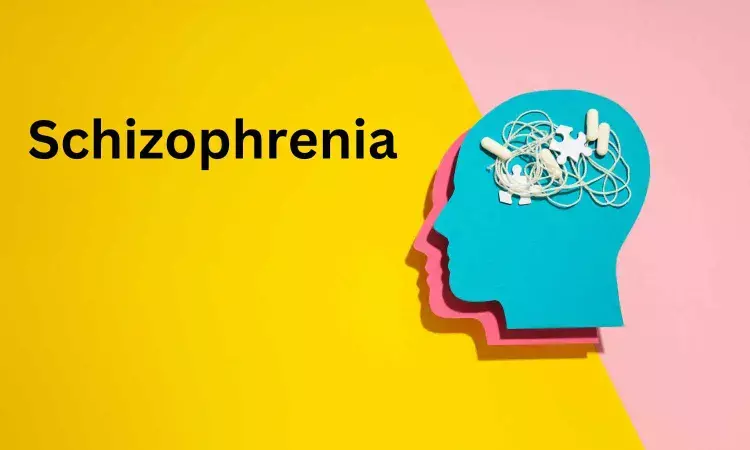- Home
- Medical news & Guidelines
- Anesthesiology
- Cardiology and CTVS
- Critical Care
- Dentistry
- Dermatology
- Diabetes and Endocrinology
- ENT
- Gastroenterology
- Medicine
- Nephrology
- Neurology
- Obstretics-Gynaecology
- Oncology
- Ophthalmology
- Orthopaedics
- Pediatrics-Neonatology
- Psychiatry
- Pulmonology
- Radiology
- Surgery
- Urology
- Laboratory Medicine
- Diet
- Nursing
- Paramedical
- Physiotherapy
- Health news
- Fact Check
- Bone Health Fact Check
- Brain Health Fact Check
- Cancer Related Fact Check
- Child Care Fact Check
- Dental and oral health fact check
- Diabetes and metabolic health fact check
- Diet and Nutrition Fact Check
- Eye and ENT Care Fact Check
- Fitness fact check
- Gut health fact check
- Heart health fact check
- Kidney health fact check
- Medical education fact check
- Men's health fact check
- Respiratory fact check
- Skin and hair care fact check
- Vaccine and Immunization fact check
- Women's health fact check
- AYUSH
- State News
- Andaman and Nicobar Islands
- Andhra Pradesh
- Arunachal Pradesh
- Assam
- Bihar
- Chandigarh
- Chattisgarh
- Dadra and Nagar Haveli
- Daman and Diu
- Delhi
- Goa
- Gujarat
- Haryana
- Himachal Pradesh
- Jammu & Kashmir
- Jharkhand
- Karnataka
- Kerala
- Ladakh
- Lakshadweep
- Madhya Pradesh
- Maharashtra
- Manipur
- Meghalaya
- Mizoram
- Nagaland
- Odisha
- Puducherry
- Punjab
- Rajasthan
- Sikkim
- Tamil Nadu
- Telangana
- Tripura
- Uttar Pradesh
- Uttrakhand
- West Bengal
- Medical Education
- Industry
Xanomeline and trospium chloride Improves Cognition in Schizophrenia With Baseline Impairments, reveals study

Xanomeline and trospium chloride (KarXT), a novel M1/M4 muscarinic receptor agonist, significantly improves cognitive performance among patients with schizophrenia who have baseline cognitive impairments. This was reported by a recent study published in The American Journal of Psychiatry conducted by William P. and fellow researchers.
Earlier work, including a phase 2 trial, established that xanomeline/trospium enhances cognitive measures in a subgroup of patients who enter the trial with clinically significant baseline cognitive impairments. Phase 3 trials, recently completed, validated this observation and established xanomeline/trospium as a targeted therapy for cognitive impairment in schizophrenia, even though its established efficacy remains as an antipsychotic medication.
Methods
Data from two 5-week inpatient phase 3 trials were analyzed. These trials evaluated the efficacy of xanomeline/trospium as monotherapy in patients with acute schizophrenia. The primary endpoint was the Positive and Negative Syndrome Scale (PANSS) total score. To evaluate cognitive benefit, the statistical analysis plan included comparisons of changes in cognitive composite score between xanomeline/trospium and placebo in two groups: the full sample (N = 357) and a subgroup with clinically significant baseline cognitive impairment, defined as scores ≤1 SD below norms at baseline. Additional analyses examined the effect size in subgroups with more severe cognitive impairment (≤−1.5 SD).
Results
• Full Sample Analysis: In the full sample (N = 357), there were no significant cognitive differences between xanomeline/trospium and placebo.
Cognitively Impaired Subgroup (≤−1 SD):
• For the cognitively impaired subgroup (≤−1 SD), xanomeline/trospium (N = 71) significantly outperformed placebo (N = 66).
• Difference between least squares means: 0.31, SE: 0.10, effect size (d) = 0.54.
• Higher Threshold of Impairment (≤−1.5 SD):
• The effect size increased to 0.80, which means the cognitive benefit was stronger in participants with more severe baseline impairments.
• Symptom Correlation: Improvements in cognitive scores were minimally correlated with changes in PANSS total, positive, or negative symptoms in both treatment groups, which means that the cognitive benefits were independent of improvements in psychotic symptoms.
Xanomeline/trospium significantly improved cognitive performance in schizophrenia patients with baseline impairments, confirming previous phase 2 findings. The cognitive benefits, independent of psychotic symptom changes, suggest xanomeline/trospium’s potential as a novel treatment for cognitive deficits in schizophrenia. Further research is warranted to explore its long-term effects in stable patients.
Reference:
Horan, W. P., Sauder, C., Harvey, P. D., Ramsay, I. S., Yohn, S. E., Keefe, R. S. E., Davis, V. G., Paul, S. M., & Brannan, S. K. (2024). The impact of xanomeline and trospium chloride on cognitive impairment in acute schizophrenia: Replication in pooled data from two phase 3 trials. The American Journal of Psychiatry. https://doi.org/10.1176/appi.ajp.20240076
Dr Riya Dave has completed dentistry from Gujarat University in 2022. She is a dentist and accomplished medical and scientific writer known for her commitment to bridging the gap between clinical expertise and accessible healthcare information. She has been actively involved in writing blogs related to health and wellness.
Dr Kamal Kant Kohli-MBBS, DTCD- a chest specialist with more than 30 years of practice and a flair for writing clinical articles, Dr Kamal Kant Kohli joined Medical Dialogues as a Chief Editor of Medical News. Besides writing articles, as an editor, he proofreads and verifies all the medical content published on Medical Dialogues including those coming from journals, studies,medical conferences,guidelines etc. Email: drkohli@medicaldialogues.in. Contact no. 011-43720751


